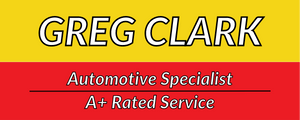Are auto repairs needed on your vehicle? Even if it doesn’t now, you know how it feels. You probably also know how it feels to be unsure of the decisions you are making. How can you be sure? Read on to discover some great tips to help you with dealing with auto repairs.
Know what the repair is going to cost you before handing over your keys. Should you need clarification about the repairs, speak with the service manager or your mechanic before work begins. If you do not communicate with your mechanic, you might be surprised with additional fees once you receive your bill.
You don’t always need a repair-person for your car troubles. Some jobs are simple and do not need to be taken to the auto shop. You can always go online and try to diagnose the problem and educate yourself to the possibilities. It isn’t all that hard, and you can really save lots of money by repairing your car yourself.
Try to learn the problem before you take your vehicle to a mechanic. This will help you to save loads of money on an auto repair. Some mechanics are dishonest and will say the problem is more serious than it actually is.
Assemble an auto repair kit and put it inside of your trunk. You need to include a complete tire changing kit. Get a lug wrench and jack if you do not have one yet. You will need several screwdrivers, ratchets, socket wrenches, an adjustable wrench and a torque wrench. Never buy cheap tools. Instead, buy better quality, sturdy tools that will not break when you need them to repair something.
If the repairs your car needs are major, get several quotes before hiring a mechanic. The shop you’ve gone to may be trying to rip you off. Look around for reputable shops that specialize in your car’s make. Your car is more likely to be repaired properly at these shops.
Talk to your mechanic about the rates that you will have to pay. Some repair shops have details about their rates posted on the walls, but you should not hesitate to ask about rates if you do not see any information. Also find out how you are to be billed. Some stops estimate repair times according to what the manufacturer suggests. Some “minor” repairs can take all day according the the estimates of the manufacturer.
Look at flashing lights on your dashboard and learn what each one signifies. These symbols light up to warn you of a problem. When you ignore them, you’ll pay for it.
Find out a little about the car parts you need before you go to a mechanic. There are several different classifications that determine the quality of the part. New parts are made solely to a manufacturer’s specifications. “Refurbished”, “rebuilt”, etc. mean that the part is like new, and potentially even better than new, as it has been renovated and tested repeatedly. However, salvage is simply another word for a used part.
An engine flush is not necessarily normal maintenance. This service is very expensive and it isn’t necessary unless you have neglected engine care for some time.
Original Equipment Manufacturer is the meaning of OEM. Remember this when you need a part replaced on your car. You will seem like you know what you are talking about if you tell a mechanic you only want OEM parts. There will be far less danger of receiving used parts.
You should be consistent when it comes to auto repairs. If you’re lucky enough to have a shop you trust, use them regularly. The same mechanic will know your car inside and out and will be best qualified to work on it. They could charge different amounts that cause you to pay more for repairs.
Once a mechanic diagnoses your car, ask if you can take some time to consider whether or not you want to hire them. Call around and get more quotes before making your decision. If another place can fix it cheaper, pay the first place their fee for the diagnostic and have your car fixed somewhere else.
You can find the solution you need by remembering the tips that have been described. Continuing educating yourself on auto repairs to keep up with current pricing and gain a better understanding of your vehicle’s needs. Feel confident that you’ve done everything possible to maintain your car.

